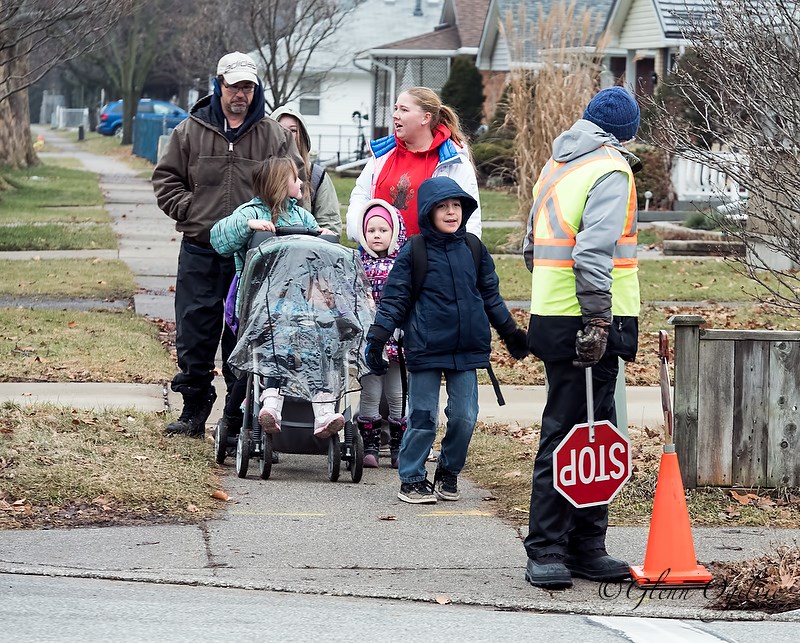George Mathewson
Last week, city council voted to remove crossing guards hired to assist school children across seven busy intersections, primarily during the lunch hour.
Yet there was no debate or warnings about the safety and legal liability, and the impacted schools agreed with the decision.
Why?
City staff visited the intersections in June and again in November to count the number of kids coming and going to school.
The result: at five of the intersections no children needed a crossing guard at lunch, and at two more no kids crossed the road, period.
As Coun. Anne Marie Gillis noted: “Traditional lunch hours are not what they used to be.”
The reality is, we have fewer schools and it’s hard for busy working families to find time to gather around the table for dinner, let alone break bread at lunch.
The intersections are Murphy and Bradford, Murphy and Leckie, Indian and Oak, Willa and Kember and Cathcart and Grace. Crossing guards were nixed entirely at Christina and Durand and Confederation and Ontario.
BOARING HISTORY
Local historian Dean Hodgson recently shared a municipal bylaw he unearthed from 1842 that speaks volumes about life in early Port Sarnia.
The bylaw is all about livestock, and the need for the community’s 600 residents to stop them from getting underfoot.
Cattle were no longer allowed to wander loose between the hours of 10 a.m. and 4 p.m. and any cow caught feeding on the sidewalk could be impounded.
Likewise, pigs were prohibited from running free in the village itself, but between November and April 1 could be turned loose to forage in the surrounding bush.
The community had a common pasture, but horses and bulls over a year old were no longer allowed to use it for free.
And the stiffest fine, ten shillings, was reserved for those thoughtless ne'er-do-wells who let their boars run wild in the streets.
CHRONICLES OF SARNIA
Regular readers are all-too-aware of our pointless search for other things on this planet carrying the name of Sarnia.
So far, the Chronicles of Sarnia have turned up numerous streets and parks, a handful of businesses and hotels, two ships and two schools, and three people named Sarnia, as well as a circus lion, a symphony, a pink-haired anime character and a rare silkworm.
But just when the trail had grown cold this news item came ricocheting out of cyberspace.
In Mongolia — and I’m not making this up —lives a young rapper by the name of Amarmandakh Sukhbaatar who is lead singer of a band called Khar Sarnia, or Black Rose.
Mr. Sukhbaatar made international headlines in December when he was reportedly beaten into a coma by a Russian diplomat for wearing a swastika during a concert in the capital Ulaanbaatar.
The hunt continues.
